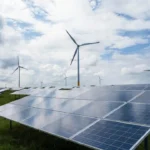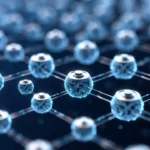Energy conversion efficiency is critical in our quest for sustainable and responsible energy usage. It encompasses extracting the most work or usable energy from a given resource while minimizing waste and environmental impact. Understanding and improving efficiency is paramount in an era of finite energy resources, and climate change necessitates cleaner energy production. This comprehensive exploration delves into energy conversion efficiency, uncovering its significance, applications across various sectors, and its transformative potential for creating a more sustainable and energy-efficient future.
The Significance of Energy Conversion Efficiency
Energy conversion efficiency is a pivotal metric underpinning our approach to energy utilization. It is a critical yardstick for assessing the effectiveness of various energy conversion processes and technologies.
Maximizing Resource Utilization
At its essence, the significance of energy conversion efficiency lies in its capacity to maximize the utilization of available resources. By extracting the utmost energy from a given resource, we can substantially reduce our dependence on fossil fuels, thereby diminishing greenhouse gas emissions and lessening the environmental toll of energy production.
Economic Benefits
Enhancing energy conversion efficiency translates into economic gains on multiple fronts. It reduces energy costs for consumers, slashes operational expenses for businesses, and bolsters the competitiveness of renewable energy sources, rendering them economically viable alternatives.
Environmental Conservation
Energy conversion efficiency is a linchpin in environmental conservation. By optimizing it, the overall energy demand is lowered, resulting in reduced environmental harm from resource extraction, energy production, and waste disposal.
Techniques for Enhancing Energy Conversion Efficiency
Various techniques and technologies are harnessed across various sectors to enhance energy conversion efficiency, each contributing to the broader goal of responsible resource utilization and sustainability.
Advanced Materials and Engineering
Developing advanced materials and engineering techniques in many industries is pivotal for improving efficiency. For instance, in the automotive sector, utilizing lightweight materials and pursuing aerodynamic designs are pivotal to maximizing fuel efficiency.
Combined Heat and Power (CHP) Systems
CHP systems, known as cogeneration, are exemplary models for efficient energy utilization. These systems adeptly capture and harness waste heat generated during electricity generation, utilizing it for heating or cooling purposes. Such integration significantly elevates overall energy conversion efficiency.
Energy Storage Technologies
Energy storage technologies, encompassing batteries and thermal storage systems, play a vital role in optimizing energy conversion. These technologies enable surplus energy to be efficiently stored and subsequently deployed when needed, effectively curbing energy losses and enhancing overall efficiency.
Applications of Energy Conversion Efficiency
Energy conversion efficiency finds multifaceted applications across various sectors, each reaping the tangible benefits of optimized energy utilization.
Transportation
In transportation, the pursuit of enhanced efficiency assumes paramount importance. This endeavor encompasses technologies such as hybrid and electric vehicles, aerodynamic advancements, and engine efficiency enhancements, all contributing to reduced fuel consumption and emissions.
Power Generation
Augmented energy conversion efficiency benefits both conventional and renewable energy sources. High-efficiency gas turbines, coupled with innovative cycles, bolster the efficiency of natural gas power plants. Meanwhile, ongoing advancements in photovoltaic cells and wind turbines continuously refine their energy capture capabilities.
Industrial Processes
Industrial processes, which are often energy-intensive, benefit immensely from optimized energy conversion. Pursuing energy efficiency involves optimizing manufacturing processes, integrating CHP systems, and effectively recycling waste heat, all of which culminate in substantial energy savings.
Residential and Commercial Buildings
Energy-efficient buildings leverage a suite of strategies, encompassing enhanced insulation, efficient heating and cooling systems, and the integration of smart technologies. These measures not only reduce energy consumption for occupants but also contribute to reducing emissions.
Challenges and Ethical Considerations
While the endeavor to enhance energy conversion efficiency holds tremendous promise, it is accompanied by challenges and ethical considerations that demand judicious attention.
Technological Innovation
Sustained technological innovation is imperative to drive further improvements in energy conversion efficiency. This journey necessitates continuous research, development, and substantial investments in novel technologies, which may pose resource challenges.
Economic Equity
Efforts must be actively channeled to ensure that the advantages of enhanced efficiency are equitably distributed. Transitioning toward more efficient energy systems must not marginalize vulnerable communities and developing regions.
Environmental Impact
Despite the overarching goal of reducing environmental impact through heightened efficiency, a comprehensive assessment of emerging technologies’ environmental footprints is essential. Comprehensive life cycle assessments must be conducted to preclude unforeseen environmental consequences.
The Future of Energy Conversion Efficiency
The future of energy conversion efficiency holds immense promise, heralding a trajectory toward a more sustainable, efficient, and resilient energy landscape.
Integration of Renewable Energy
As renewable energy sources gain increasing prominence, optimizing energy conversion efficiency becomes central. Ongoing advancements in energy storage, grid management, and renewable technologies are pivotal to ensuring the seamless integration of renewables into the energy matrix.
Decentralized Energy Systems
The ascent of decentralized energy systems, encompassing microgrids and distributed generation, hinges upon enhanced energy conversion efficiency. These systems are poised to maximize local energy production and consumption and reduce losses during energy transmission.
Energy Efficiency as a Service (EEaaS)
The paradigm of Energy Efficiency as a Service (EEaaS) is gaining momentum, democratizing access to energy-efficient technologies. This model enables businesses and individuals to access and benefit from energy efficiency improvements without necessitating substantial upfront investments, thus fostering broader participation in the efficiency revolution.
Conclusion
Energy conversion efficiency is not merely a technical metric; it is a linchpin in our efforts to create a more sustainable, economical, and environmentally responsible energy future. Its significance lies in its ability to maximize the potential of our finite resources while minimizing waste and environmental harm. As we continue to advance efficiency, ethical considerations, equitable access, and environmental impact must guide our actions.
It envisions a future where energy is harnessed with unprecedented efficiency, sustainability is ingrained in our energy systems, and responsible energy conversion propels us toward a cleaner and more prosperous world. Energy conversion efficiency stands as a beacon, guiding us toward a future where the power of resources is optimized to its fullest potential.





